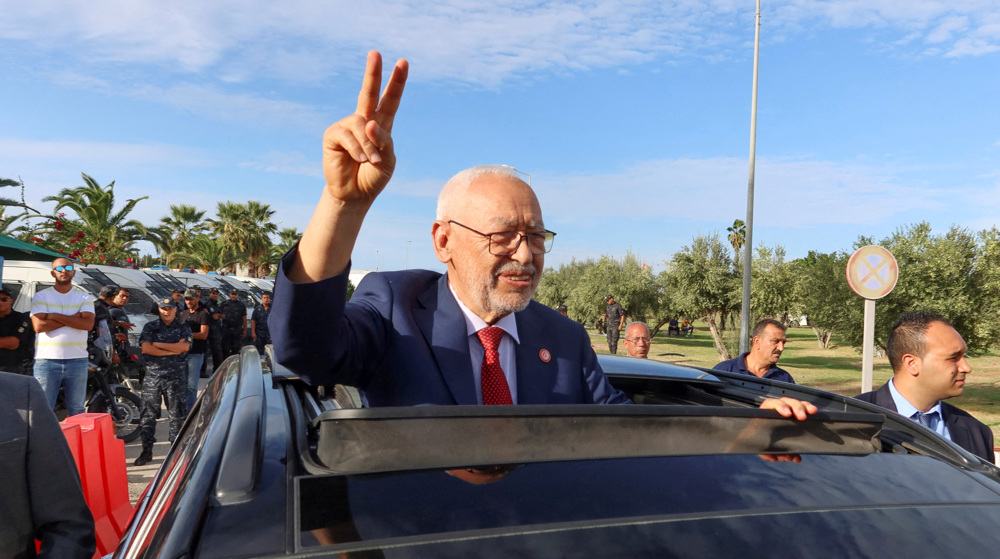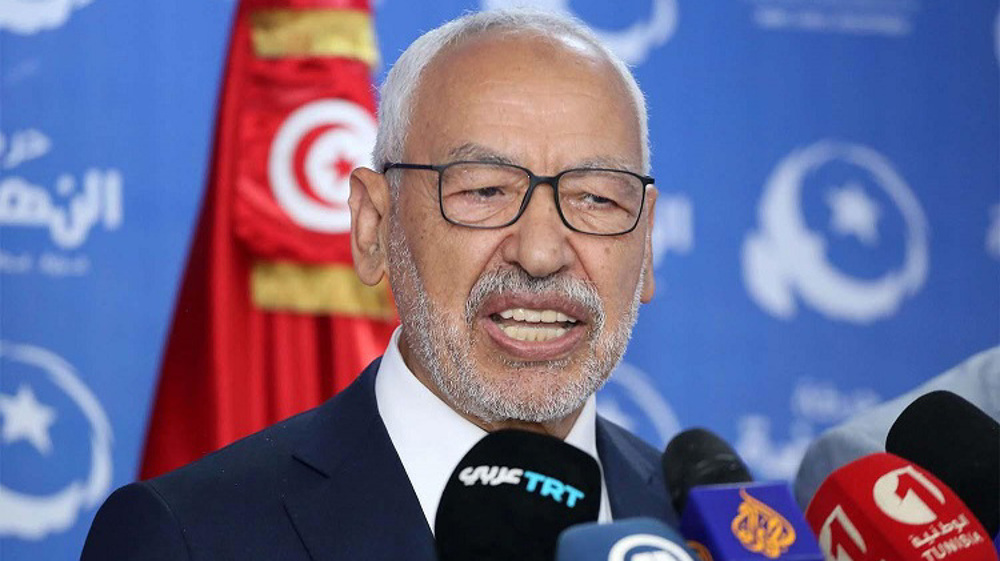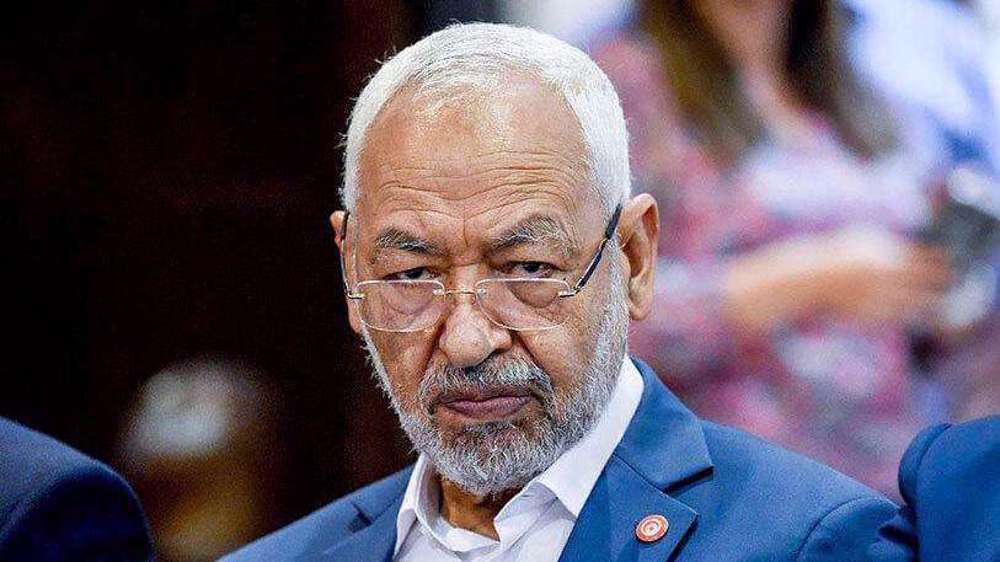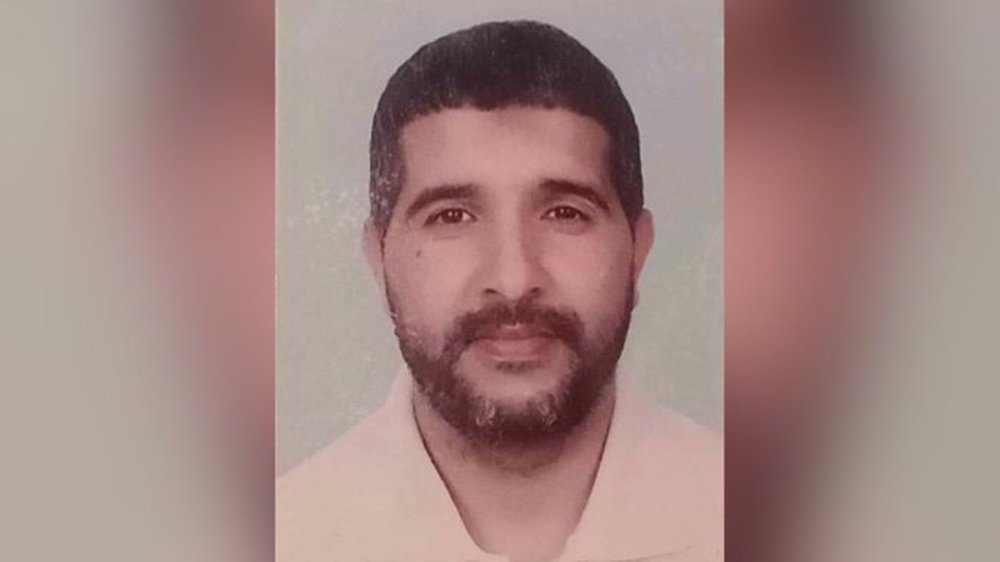Tunisian opposition leader Ghannouchi begins hunger strike behind bars in protest against detention
Tunisian opposition leader Rached Ghannouchi has begun his three-day hunger strike in protest at his detention and in solidarity with other “political prisoners.”
Ghannouchi, 82, was arrested on April 17, when the Tunisian police raided and searched his house in the capital Tunis before taking him away. The arrest came after he warned that eliminating different viewpoints such as the left or political Islam may lead to a “civil war” in the North African country.
Since early February, authorities in the North African country have arrested more than 20 opponents of incumbent President Kais Saied, including politicians, former ministers, businesspeople, trade unionists, and the owner of Tunisia's most popular radio station, Mosaique FM.
Back in May, Ghannouchi, who was the speaker of Tunisia's parliament before Saied dissolved it in March last year, was handed down a one-year prison sentence on terrorism-related charges, which he strongly denies.
Ghannouchi, the co-founder of the Ennahda party and the most prominent critic of Saied, started his three-day hunger strike on Friday, pledging that he would not eat until restrictions on him and other prisoners are lifted.
He revealed his intention a day earlier through adviser Riad al-Shuaibi, who said Ghannouchi’s hunger strike would be “ongoing” until “all grievances and restrictions imposed on him and other political detainees are lifted.”
Separately, Imed Khemiri, Ennahda's spokesperson explained the party's position, saying that Ghannouchi "decided to begin a three-day hunger strike to denounce the arbitrary and unfounded prosecution of the opposition.”
The Ennahda party, which defines itself an Islamic democratic political party and one of the most prominent parties in Tunisia, condemned Ghannouchi’s sentence in May as an “unjust political verdict.”
The sentence marked the most high-profile escalation of an authoritarian crackdown that has been ongoing since Saied took office in October 2019.
In August, hundreds of influential figures from across the Arab and Muslim world called on the Saied administration and the judiciary to swiftly release Ghannouchi and other political detainees in Tunisia.
In their open letter, the signatories stressed that Ghannouchi’s arrest is part of a “widespread crackdown” on dissent that has intensified since February.
Saied, 65, claims those detained are “terrorists” involved in a “conspiracy against state security.” Local and international rights groups have criticized the arrests.
‘Free Ghannouchi’ an online campaign calling for the release of the opposition leader also released a statement on Friday holding Saied “fully responsible for the consequences of the strike on the health of… Ghannouchi.”
“Going on hunger strike for the sake of freedom and dignity for all political prisoners is not a novelty for Rached Ghannouchi, who has spent more than four decades struggling for freedom, justice and other noble human values,” the statement added.
Saied, a former constitutional law professor, began a massive power grab in July 2021 by sacking the government and freezing the country's parliament -- known as the Assembly of the Representatives of the People. He later gave himself powers to rule and legislate by decree and seized control over the judiciary, in what rivals saw as further blows to democracy.
The Ennahda party was the largest faction in Tunisian parliament before Saied closed down the chamber.
The Tunisian president insists that his measures are meant to save the country from a civil war. Critics, however, have accused him of orchestrating a coup.
VIDEO | The Shankill Butchers
VIDEO | Africa’s stolen heritage
VIDEO | An insider’s view of the country: Birjand, the city of science and glass art
‘Violent suppression of anti-Zionist student protests shows West’s true colors’
VIDEO | Displaced Gazans thank US students for their support
‘Hamas serious about reaching agreement, will not yield to US pressure’
Haniyeh: Justice demands arrest of Netanyahu, his terrorist cabinet
VIDEO | Israeli war crimes in Gaza












 This makes it easy to access the Press TV website
This makes it easy to access the Press TV website